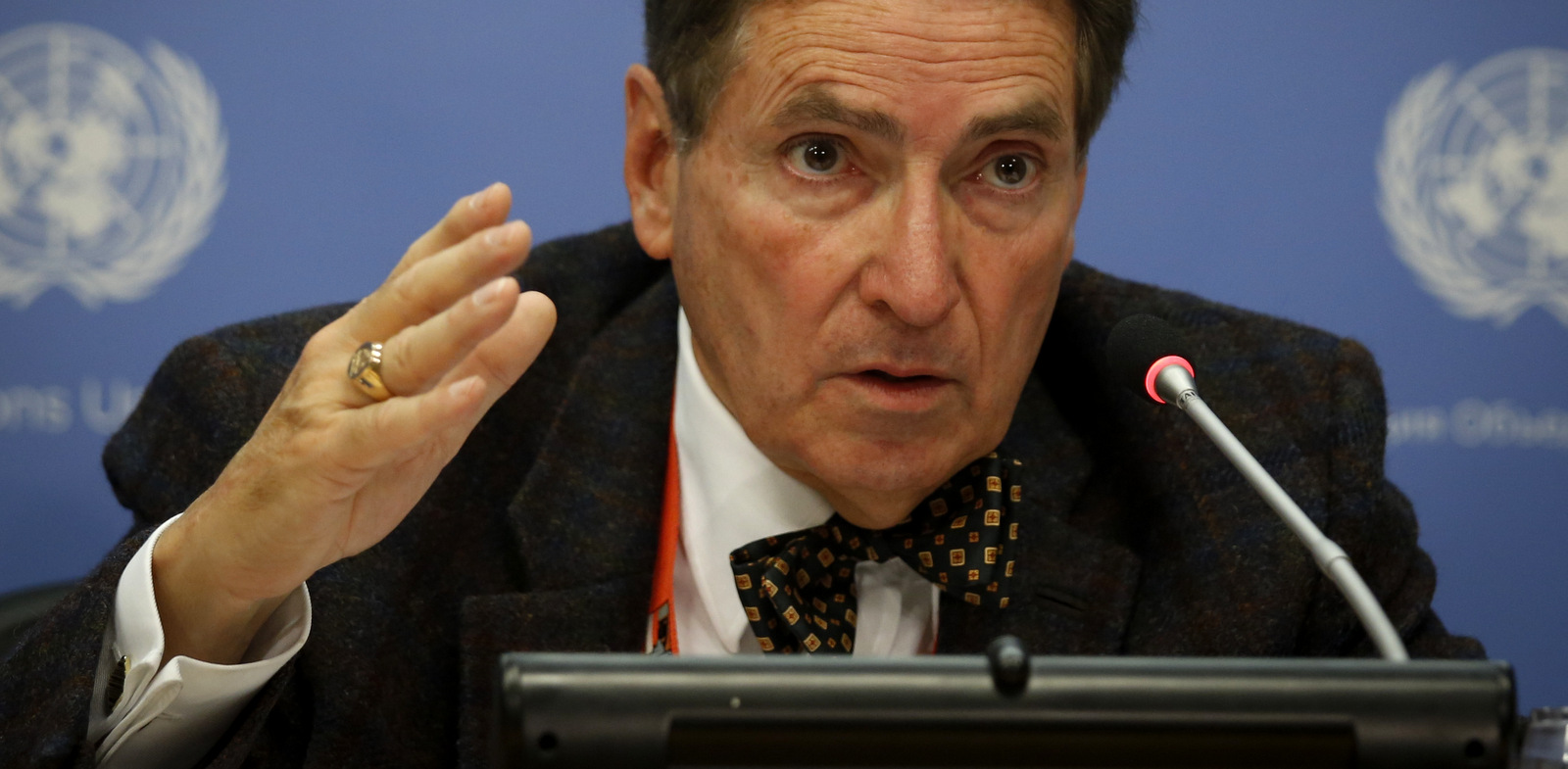Alfred de Zayas, a UN Independent Expert for the promotion of an international democratic and equitable order, told Venezuela’s newspaper Últimas Noticias that “it is time” for Venezuela to ask the International Criminal Court “for an investigation into the crimes against humanity committed by the United States for imposing sanctions against it.”
Why do you consider sanctions as crimes against humanity?
In 2000, the Sub-Commission on the Promotion and Protection of Human Rights published a study that described sanctions as a serious violation of international law and human rights. In 2015, the Human Rights Council in Geneva created the role of the Special Rapporteur on Unilateral Coercive Measures. In his reports Idriss Jazairy, the Rapporteur, has demonstrated the adverse impacts of sanctions and has negotiated with governments so that sanctions are eliminated, as they are contrary to the spirit and letter of the International Covenant on Civil and Political Rights and the International Covenant on Economic, Social and Cultural Rights. The General Assembly of the United Nations has condemned the sanctions against Cuba and the “blockade” with 25 resolutions that, unfortunately, the US has ignored.
In my opinion, as a professor of International Law and former Secretary of the Human Rights Committee, sanctions that cause the death of children due to malnutrition, lack of drinking water, or that cause deaths due to lack of insulin, medicines against cancer and malaria, or due to lack of medical equipment and technical material, constitute a crime against humanity, especially because they are intentional, sadistic, their objective being to create suffering.
Related
- The ICC Plays Scripted Role in Regime Change Plot Against Venezuela
- US Imposes Sanctions Against Venezuela’s Petro Cryptocurrency
- Noam Chomsky, Danny Glover and Other Activists Denounce US, Canadian Sanctions on Venezuela
- The New York Times’ Uncanny Comparison of a Venezuelan Opposition Leader to Martin Luther King
The sanctions against Venezuela have exacerbated the economic crisis caused by the collapse of oil prices, leading to a serious scarcity of medicines and food, other shortages, distribution delays, etc. As a consequence Venezuelan children have died, as have adults and elderly people. Keeping in mind that sanctions are not accidental but planned and deliberate, this amounts to criminal liability, and the situation must be brought to the attention of the General Assembly with a view to adopting resolutions that clearly declare the sanctions illegal and criminal.
What could be done?
It is time to ask the Prosecutor of the International Court of Justice to open an investigation into the US’s crimes against humanity for imposing sanctions against the Venezuelan people, since the direct consequences of the sanctions are shortages of food and medicine and the death of innocent people through malnutrition or lack of medicines.
We need to determine the number of people who die, for example, from lack for insulin or antimalarial and anticancer drugs, etc. Article 7 of the Rome Statute defines what crimes against humanity are, and I am convinced that the kind of sanctions that are being applied against Cuba and Venezuela constitute crimes against humanity. This could also be verified by the International Court of Justice acting in an advisory role.
You mentioned that the UN should help. In what way could it do it?
Secretary General Antonio Guterres should offer his good offices to mediate between opposition and government and reopen the Dominican Republic negotiations. He should also send observers to the elections.
Do you plan to visit the country?
Not for the moment, but my colleague Idriss Jazairy, the Rapporteur on Unilateral Coercive Measures, has requested an invitation to visit Venezuela. The government has given him a go ahead on the visit, which will take place this year.
Translation by Cira Pascual Marquina.
Top Photo | Alfred de Zayas, U.N. independent expert on international order, hold a news conference calling for the abolition of tax havens, Oct. 21, 2016, at U.N. headquarters. (AP/Bebeto Matthews)
![]() Venezuelanalysis.com is licensed under a Creative Commons Attribution-NonCommercial-ShareAlike 3.0 International License.
Venezuelanalysis.com is licensed under a Creative Commons Attribution-NonCommercial-ShareAlike 3.0 International License.


